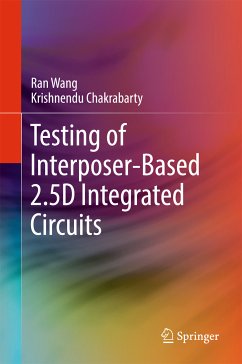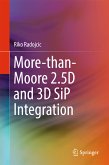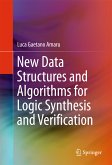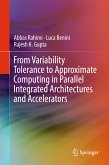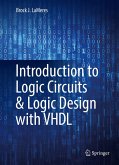- Provides a single-source guide to the practical challenges in testing of 2.5D ICs;
- Presents an efficient method to locate defects in a passive interposer before stacking;
- Describes an efficient interconnect-test solution to target through-silicon vias (TSVs), the redistribution layer, and micro-bumps for shorts, opens, and delay faults;
- Provides a built-in self-test (BIST) architecture that can be enabled by the standard TAP controller in the IEEE 1149.1 standard;
- Discusses two ExTest scheduling strategies to implement interconnect testing between tiles inside an SoC die;
- Includes a programmable method for shift-clock stagger assignment to reduce power supply noise during SoC die testing in 2.5D ICs.
Dieser Download kann aus rechtlichen Gründen nur mit Rechnungsadresse in A, B, BG, CY, CZ, D, DK, EW, E, FIN, F, GR, HR, H, IRL, I, LT, L, LR, M, NL, PL, P, R, S, SLO, SK ausgeliefert werden.
Hinweis: Dieser Artikel kann nur an eine deutsche Lieferadresse ausgeliefert werden.

